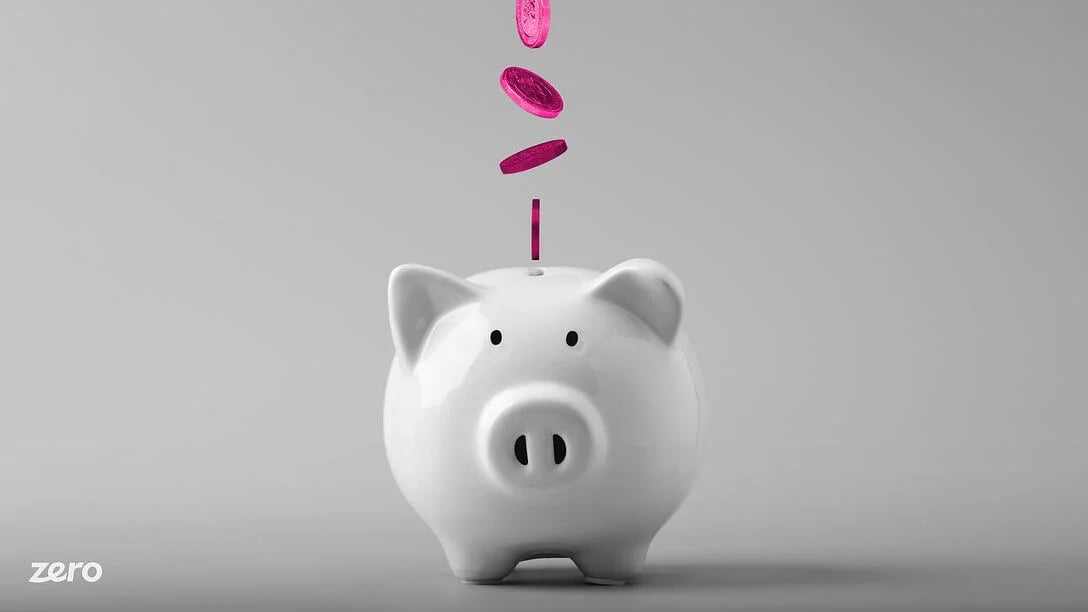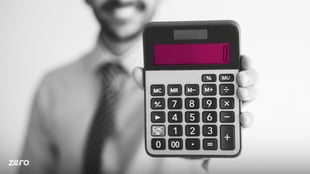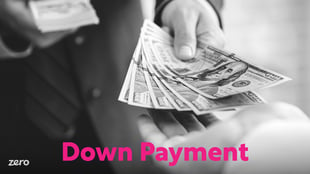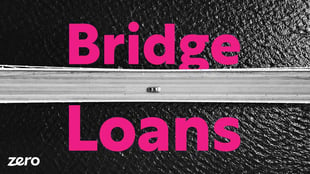What Is Earnest Money? | Earnest Money Deposit Explained

If you find a property that you’re highly interested in buying but are concerned that the seller might choose another offer over your own, you may consider making a deposit in escrow to show that you’re committed to your offer. This deposit is called an “earnest money deposit,” and is a great way to back up your offer in a competitive housing market
Read our blog written specifically for homebuying beginners here.
What Is Earnest Money?
Earnest money is typically deposited in an amount between 1 and 2% of the purchase price. It shows that you’re serious enough about your offer to give that money to the seller if you back out without good reason during the closing process. Earnest money isn’t a requirement, but it’s strongly recommended and shows your commitment to the seller.
Understanding How Earnest Money Works
Earnest money is delivered to a third party in an escrow account when you sign a sales contract or purchase agreement. If you purchase the home, the money is refunded to you or can go toward your down payment. If you back out for a reason that isn’t outlined as a contingency in the contract (which we’ll cover more in a minute), the seller will get to keep the earnest money.
Earnest Money in Action
As an example, say that Nathan wants to purchase a $150,000 condo. Since he’s buying in a competitive market and wants to make his offer stand out, he decides to indicate in his offer that he will make a deposit of 2% of the sale price ($3,000). When his offer is accepted, Nathan wires the money to an escrow company.
If Nathan’s home inspection covers a serious issue like a dangerous crack in the foundation, he can back out and receive his money back. If he decides to move forward to close on the property, the earnest money will either be refunded to him or will go towards his down payment. However, if Nathan were to find another property that he was more interested in, he would have to forfeit the $3,000 in earnest money in order to withdraw his offer.
Earnest Money Deposit vs. Down Payment
Be sure not to confuse earnest money with the down payment on a house. The down payment money is brought as a cashier’s check to closing, and the amount depends on both the property type and the kind of financing used. Nathan might be able to use his earnest money as part or all of his down payment, but this isn’t a requirement.
How Much Earnest Money Is Enough?
As you can see from the example, a buyer may want to make a higher earnest money deposit when they are committed to buying or are shopping for houses in a highly competitive market. The minimum amount is 1% of the sale price, which is typically just a few thousand dollars at most.
Your real estate agent will be a great resource when it comes to deciding an earnest money amount and will use their expertise on local trends and competition to help you write your offer.
Can Earnest Money Be Refunded?
As we discussed, earnest money will either go towards a down payment if you close on the home or can be refunded if you decide to withdraw your offer for a reason outlined as a contingency in the buyer’s agreement.
4 Types of Contingencies
There are several different types of contingencies that might be included in the agreement signed by you and the seller.
1. Home Inspection Contingency
The home inspection contingency allows a buyer to withdraw earnest money if inspection findings reveal a problem with the property that costs too much to repair or that would make the home a bad purchase
Read our blog covering 8 budget-friendly DIY home improvements here.
2. Appraisal Contingency
An appraisal contingency ensures that the buyer can withdraw their offer and earnest money if their lender appraises the house and determines that it is worth significantly less than the same price.
3. Financing Contingency
A financing contingency is an important protection for the buyer that allows them to withdraw their offer and earnest money if they are unable to receive financing for the home. It also provides them with a predetermined amount of time in which they can look for financing.
4. Contingency for Selling an Existing Home
Depending on the buyer’s finances, they may want to include a sale contingency, in which they can withdraw their offer if their current home or property doesn’t sell in a given time period.
How to Protect Your Earnest Deposit in 4 Steps
Earnest deposits can range anywhere from a small amount to thousands of dollars. It’s important to take the right steps to protect your money in case you do want it refunded.
Step 1: Use an Escrow Account
Escrow companies exist so that neither the buyer nor the seller has possession of cash or assets while a house is in the middle of the sale process. If you were to give earnest money to the seller and then ask for a refund if, for example, your first home were unable to sell, there’s more room for conflict than if the money is held by an objective third party.
Step 2: Know Your Contingencies
Make sure that every relevant contingency is included in your buyer’s agreement. If you choose to forfeit contingencies, do your research beforehand to make sure you’re willing to take the chance of losing that deposit.
Step 3: Stay on Track With Responsibilities
Your responsibilities don’t stop with a signed contract. Protect yourself by staying on track with next steps: securing the financing for the home and scheduling a home inspection. Delaying these processes or failing to be through might result in a loss of your earnest money or in making rushed decisions later on.
Step 4: Put It All in Writing
Make sure that every contingency and term is included in an agreement that is signed, in writing, by both you and the seller. It might seem simple to make promises and agreements in person or over the phone, but having written documentation will guarantee your financial security and will keep a record of the process.
Our Mortgage Learning Center features blogs on a wide range of mortgage and refinancing topics.
Working With a Real Estate Agent
Making an earnest money deposit is only one aspect of making an offer on a potential home. Working with a real estate agent ensures that you have help in deciding when earnest money is important and how much to offer as a deposit. Since market trends can change depending on property type and area, it’s important to find an agent who is specifically experienced in the kind of home you’re looking for and in your neighborhood of interest.
Ready to Find the Home of Your Dreams!
This page last updated: October 17, 2022
Read more on this topic below.

When you buy a house and start making mortgage payments, your payment consists of four different components, known...

If you have gone through the pre-approval process but need to take a deeper dive into how much house to buy,...

The vast majority of mortgage loans require you to put down a certain percentage of the selling price upfront....

Whether you’re a first-time buyer or you’ve purchased a home before, you’ve likely heard of a homeowner’s association....

People buy their homes for a number of reasons. Affordability, stability, and comfort are some of the most...

There’s a lot of expenses to keep in mind when you’re thinking about buying a home. Between the price of the home, property taxes, your mortgage...

Conventional loans are mortgages offered by private lenders, banks, and institutions that are not backed by the government. Unlike FHA, USDA,...

Some homebuyers refuse to purchase a property if it is part of a property owner association. On the...

Research indicates that 58% of homeowners in HOA communities and single-family homes pay an average monthly fee...

Private mortgage insurance is something millions of homeowners pay for each year. However, this type of insurance does not protect

When you first set out to buy a home, it can feel like you’re taking an exam you forgot to study for. You have to make quick...

When looking to refinance or buy a house, the pre-qualified vs pre-approved mortgage debate can be...

It’s likely that your mortgage loan will be the largest loan you have during your lifetime. Mortgages are not a one size...

For many people, owning a home is part of the American dream. To make this dream a reality, most people will take out a...

Whenever you’re looking to buy a house, you’ll quickly realize there are a lot of fees associated with obtaining a mortgage....

A bridge loan is a short-term loan a borrower may use while a more long-term financing contract is finalized. Bridge...

A loan estimate is crucial to obtain when looking for a loan. This estimate not only gives you the details of a mortgage but also compares offers...

There are many moving parts and various people you’ll deal with throughout the homebuying process....

If you’re looking to buy a house, and do not have a mountain of cash saved up, you’ll need to consider getting a mortgage to help you finance this...

Buying a home? You’ll likely need to get it appraised before you receive the clear to close. If you’re wondering...

If you’re an active service member, a veteran, or the surviving spouse of a veteran, and you want to ...

There’s no doubt, COVID-19 changed the world in countless ways and took us all by surprise. From an...

Whenever you are borrowing money, whether it’s for a new mortgage, a refinance, credit card, or car loan, you’ll hear...

If you’re new to buying a home, you probably have quickly realized the overwhelming amount of options there...

If you’ve already gone through the lengthy process of writing offers, securing financing, and arranging inspections for your...

One of the most important steps to buying a home is deciding on a mortgage loan and deciding on a loan involves settling on a good...

First time home buyers are often surprised when they learn about all of the expenses that are associated with ...

Purchasing real estate is not as simple as finding the right home, submitting an offer, and signing the closing paperwork; many...
